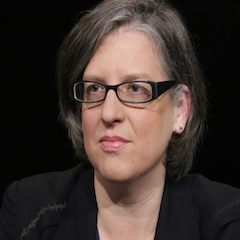McGannon Center Book Prize for 2018: Eubanks’ “Automating Inequality”

We are honored to announce that Virginia Eubank’s Automating Inequality: How High-Tech Tools Profile, Police and Punish the Poor has won our book prize for a manuscript published in 2018.
Many of us take for granted that algorithms define the ways in which we find products, read news stories, or meet people. As embedded as they have become in our lives, algorithms have come to feel self-justifying and inevitable. But we should be far more alert to their hazards. Algorithms can do as much harm as good when companies and governments employ them merely because they are available or, worse, trendy.
In Automating Inequality, Virginia Eubanks shows that algorithmic decisionmaking systems and automated predictive risk models can help to police streets, manage child welfare assignments, and provide support for the homeless. But, to the extent officials uncritically employ them, she explains, these high-tech tools destroy lives, leaving the most vulnerable among us far worse off. These dangers are often obscured and forgotten when officials announce their procurement and use under the banner of “smart” “innovation.”
Automating Inequality is a masterful account of the ways in which automated systems sometimes worsen disparities between rich and poor, men and women, whites and people of color. The book, anchored by three principal case studies to which Eubanks returns throughout, tells the story of techniques that officials have used to administer criminal justice and social welfare services. She identifies the moment in each of the three when things go awry – when the blind faith in automated processes dramatically fail the very people they were meant to help.
It is this aspect of the book – its humanity – that earns it the McGannon Center’s book prize. Our mission is “to study and deepen knowledge of the role of communication technologies in society. Its aim is to interrogate the ways in which media and networked communication technologies (1) constitute social, economic, cultural, and political arrangements and (2) affect the distribution, regulation, and control of information flows.” Automating Inequality speaks elegantly and directly to this mission. It is with humility that we associate ourselves with this impressive work. (By way of comparison, the Center’s has awarded the book prize to a wide range of influential books, including Dark Matters by Simone Brown, The Googlization of Everything by Siva Vaidhyanathan, The Master Switch by Tim Wu, The Public Domain by James Boyle, The Future of Reputation by Daniel H. Solove, and The Wealth of Networks by Yochai Benkler.)
We will convene two events at the end of the semester (on May 2 for our Rose Hill students in the Bronx and a public event on May 3 at the Lincoln Center campus) to celebrate the book and examine the important issues it raises. At both, Ms. Eubanks will present her work. We will also be joined by luminaries who work at the intersection of social justice and data science, including Cathy O’Neil (award-winning author), Scott Levy (Special Counsel at the Bronx Defenders), and Ifeoma Ajunwa (Cornell). We will distribute details about the events in the coming weeks.